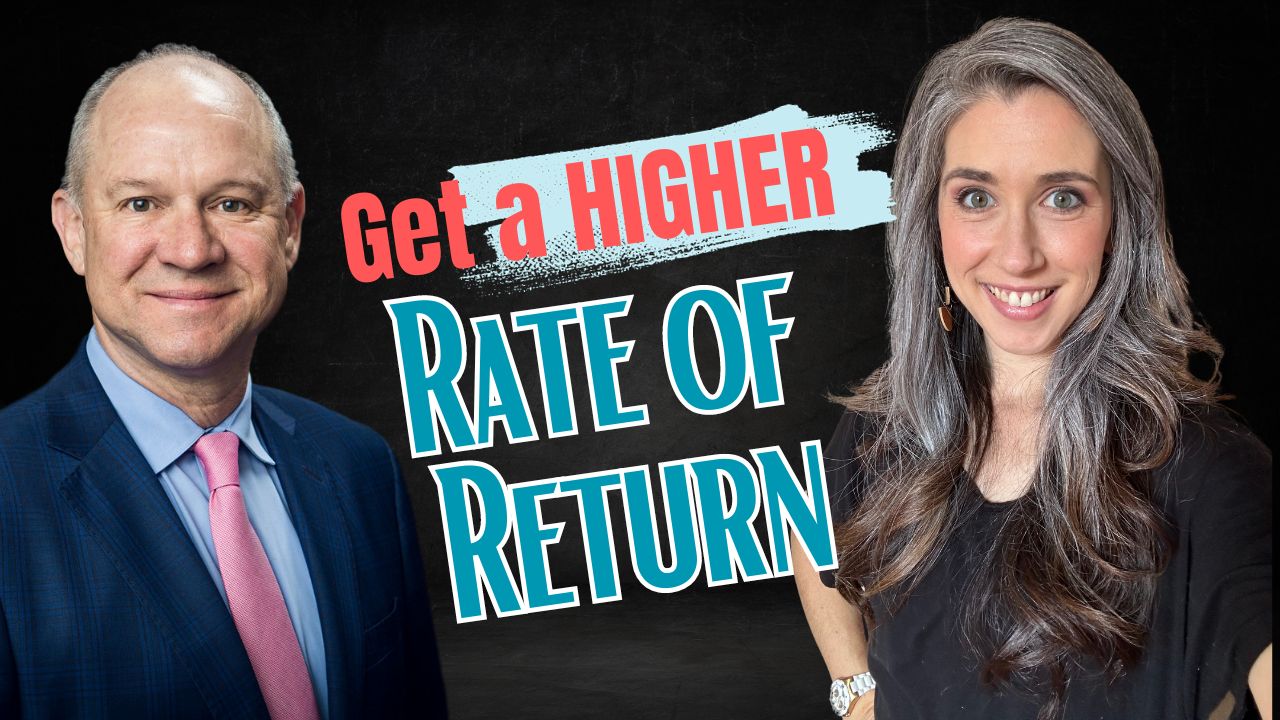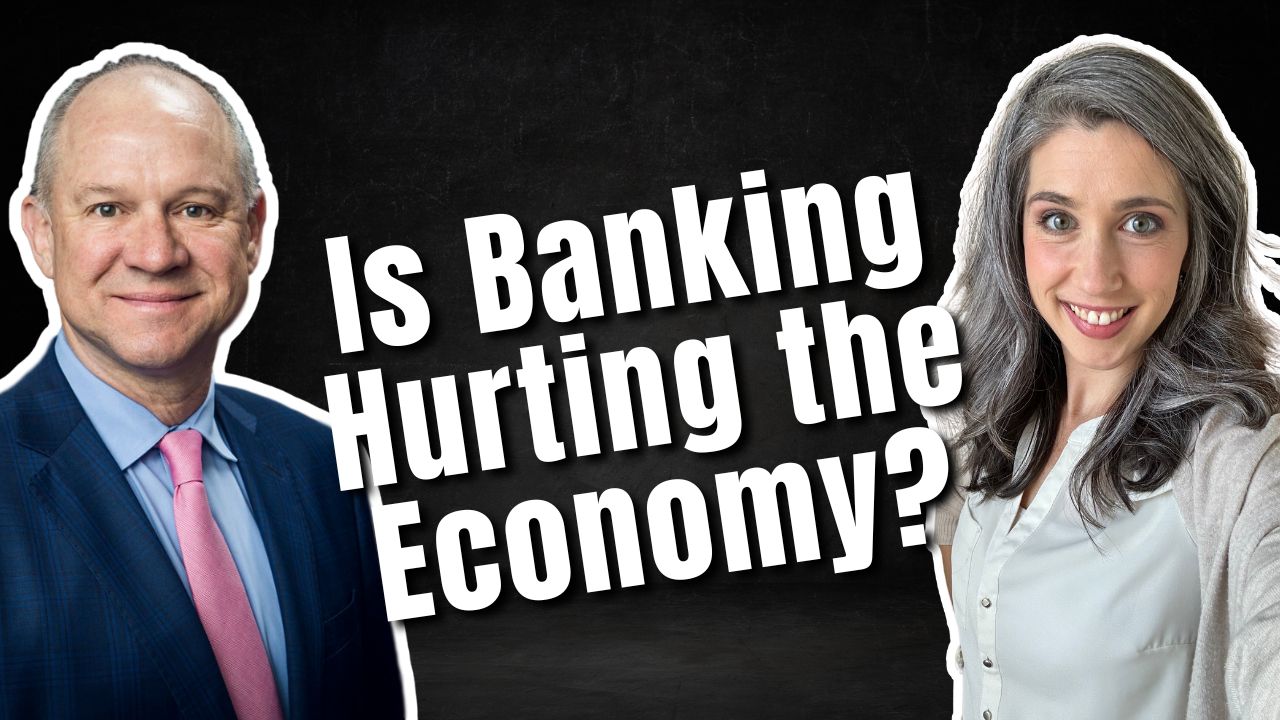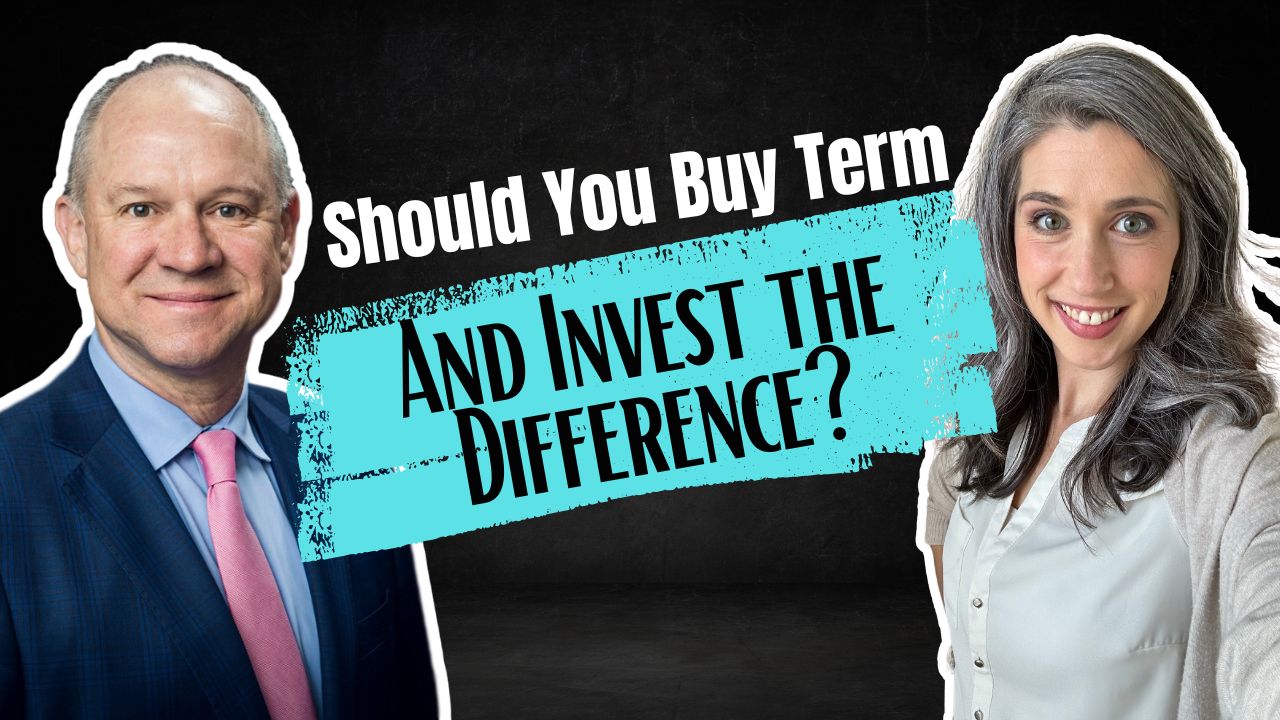
Becoming Your Own Banker, Part 22: Get a Higher Rate of Return
Are you looking for a higher rate of return? If so, your quest may point you to an important secret as you make financial decisions. Most people want to get the highest rate of return on their investment dollars …. which is why whole life insurance can be such a turn-off. It seems like a wimpy competitor in the rate of return game.
But in his groundbreaking book, Becoming Your Own Banker, Nelson Nash addresses this question head-on, which is why we will too. In today’s discussion, Bruce and I will take an honest look at the rate of return, why it’s not as simple as comparing dividend rates or interest rates, and how Infinite Banking actually increases your rate of return.
Today, we challenge the conventional wisdom that focuses solely on the rate of return. We delve into the often-overlooked elements of personal finance, such as taxes, volatility, cash flow, and the unique benefits of a life insurance policy. This episode isn’t just a numbers game; it’s a revelation of the multifaceted advantages of incorporating whole life insurance into your personal economy.
It’s time to zoom out and consider the entire financial landscape. We’re guided by Nelson Nash’s philosophy, which teaches us that every financial action – from spending to saving – is interconnected. Bruce and I explore how leveraging cash value can serve as a buffer against market volatility, enhancing your financial resilience. If you’ve been fixated on isolated investment returns, let this be the wake-up call that steers you towards a more holistic and strategic approach to building wealth.
Understanding the fine print of life insurance policies can be akin to learning a new language, but we’re here to translate. We unravel the intricacies of policy loans, PUA payments, and the latest regulatory changes impacting your Infinite Banking policy. This crucial conversation is tailored for those yearning to fine-tune their financial strategies and those curious about how behavior significantly influences financial growth. Tune in for a masterclass on optimizing your financial trajectory, and remember, if you’re seeking personal guidance, a deeper conversation is just a consultation away.
Podcast: Play in new window | Download (Duration: 1:11:11 — 81.5MB)
Subscribe: Apple Podcasts | Spotify | Android | Pandora | RSS | More
Table of Contents
”Interest Rates Don’t Matter”
Interest rates don’t matter. Or, at least, they don’t matter in the ways that most people seem to think. The reality is that not all rates are created equal because they have their own sets of circumstances. Think of how many people choose to buy a more expensive car simply to get the 0% financing. Yet, what’s more important? The interest rate that you pay, or the total monthly payment? When people prioritize interest rates, they often end up paying more per month for a more costly car. Reducing the monthly payment, even at the expense of a higher interest rate, can give you more monthly cash flow that could potentially be put to better use elsewhere, such as paying an insurance premium.
Consider, too, how this impacts rates of return. If you had to choose between a 7% rate of return on your 401k or a 7% rate of return on your Roth IRA, which would you choose? Or does it even matter? You might be tempted to say that it doesn’t matter, and yet, when it comes time to distribute your funds, you’ll have to pay taxes on the 401k, but not on the Roth IRA. With that in mind, does it matter what you choose? In this case, interest rates don’t really matter. In fact, knowing what you know, you might even choose to take a lower rate of return in the Roth IRA simply because you’ll fare better in the long run when it’s time to distribute.
When we say interest rates don’t matter, what we really mean is that they are not the beginning and end of a good financial decision. There’s information in between that lends context to the interest rates. A higher or lower interest rate is not automatically good or bad. And often, that line of thinking leads you to make choices that don’t keep the bigger picture in mind.
Everyone is Seeking a Higher Rate of Return
[12:18] “Looking at your personal economy or your business economy in one silo doesn’t maximize what you’re trying to accomplish.”
If you want to do the most with your money, it seems only logical that you would seek the highest rate of return possible in all things. However, this can be counterintuitive to your overall goals. One reason this could happen is because high rates of return often come from riskier assets—and you don’t want to invite too much risk into your portfolio. If you do, you want to balance it with assets that have more guarantees and more certainty, like life insurance. That way, you don’t lose everything in a bad market.
In this way, seeking high rates of return on all assets is not the most helpful solution to maximize your money. Sometimes, you want to seek those moderate RORs to create balance.
Another way whole life insurance can be impactful, even with its moderate ROR, is because it provides you with capital that you can use to invest. It’s unlike your other assets that way. So it behooves you to create and grow this pool of liquid cash in the long-term, even if it’s not totally competitive with something like the stock market (though we think the steady growth of it is competitive).
How Are You Financing?
The key is to understand how you’re financing everything. We’re not suggesting that you need to go line by line through your spending. What we’re really suggesting is that you have an awareness of how your various cash flows are working together (or not). Are you paying a bit more interest on your car for that better monthly payment, and then applying the difference to your insurance premium? Are you raising your deductibles to lower your car insurance, and applying the excess to your premium? What bucket are you using to finance your investments, and what bucket are you using to repay your policy loans?
It’s not so much about WHAT you’re spending or doing, but HOW and WHY you’re doing it. By having a good idea of how your money is flowing, you can fine-tune things to be even more efficient. That way you’re getting the most accumulation—and sometimes that means you’re not so laser-focused on your rate of return.
Life Insurance Allows You to Do More
One of the most compelling aspects of whole life insurance is that you don’t have to sacrifice your other options to have it. It’s not like having a savings account where you can either use the money for this investment or that investment. Instead, you can put your money into life insurance for the Death Benefit and other guarantees, AND you can use it to invest in something. And then you can use it again and again and again.
While you won’t be “averaging 12%” with life insurance the way many claim you can in the stock market, the rate of return is steady and reliable. This allows you to be confident in your pool of capital. And while you may be paying interest to the insurance company to access that cash, this is worth the opportunity to replenish your pool of capital.
If you’re fully paying your premium and PUAs, you’re maximizing your cash value and getting the most capital you possibly can. While you can’t change your rate of return on the policy, you can increase the pool of money that’s earning the rate of return, and that is significant to your accumulation journey. The more you accumulate, the more opportunities you have. These opportunities include investments that WILL improve your overall cash flow over your lifetime, and you can only build that on a solid foundation. Life insurance is that foundation.
Book A Strategy Call
Do you want to coordinate your finances so that everything works together to improve your life today, accelerate time and money freedom, and leave the greatest legacy? We can help! Book an Introductory Call with our team today https://themoneyadvantage.com/calendar/, and find out how Privatized Banking, alternative investments, or cash flow strategies can help you accomplish your goals better and faster. That being said, if you want to find out more about how Privatized Banking gives you the most safety, liquidity, and growth… plus boosts your investment returns, and guarantees a legacy, go to https://privatizedbankingsecrets.com/freeguide to learn more.
Fractional Reserve Banking Creates Inflation: Infinite Banking is the Solution
Inflation causes everything to feel more expensive, so what do you do to protect your money from inflation? Today, we’ll explore the link between inflation and fractional reserve banking, and how Infinite Banking is the sound money solution. A thought-provoking journey through inflation, fractional reserve banking, and the revolutionary concept of infinite banking. This episode…
Read MoreBuy Term and Invest the Difference: Here’s What’s Wrong
Are you trying to decide which type of life insurance to buy? You want to protect your family in case something happens, so how do you do it best? Whole life insurance is often rejected as expensive and a poor “investment,” while mainstream opinion leans in favor of the “buy term and invest the difference”…
Read More


